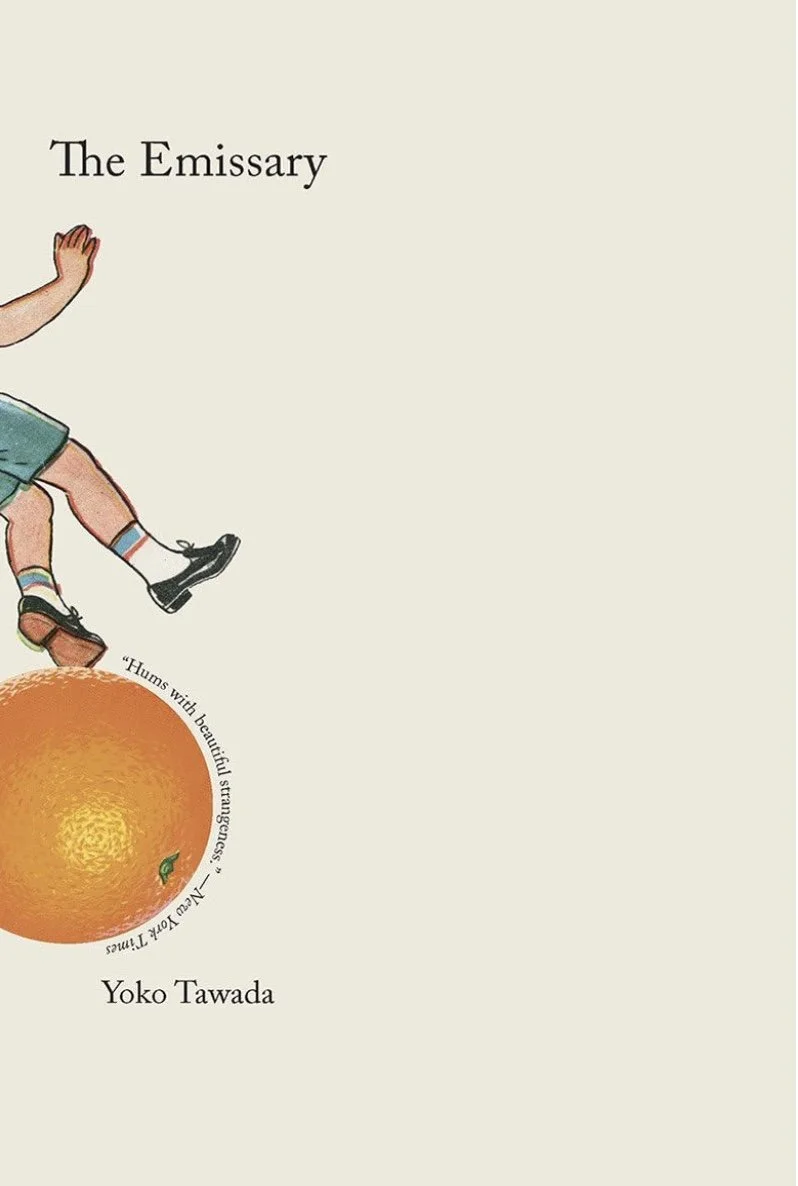The Emissary
by Yoko Tawada
A bleak, devastating vision of Japan’s collapse where the old live on and the young fade before they’ve even begun.
For readers of The Memory Police or Never Let Me Go, The Emissary carries that same mix of sadness and resignation. What sets Tawada apart is how she ties it to nationalism and environmental ruin, pushing reality just far enough to feel absurd and devastating, while capturing the loneliness and regret that come with the powerlessness of the individual.
What It’s About
Japan has sealed itself off from the rest of the world. The elderly live without end. Children are born fragile, their bodies warped by radiation and chemicals. Parents often vanish into their own lives, leaving great-grandparents like Yoshiro to care for the children.
In this world, pride has hardened into nationalism, and the future is slipping away.
“Every country has serious problems, so to keep those problems from spreading all around the world, they decided that each country should solve its own problems by itself.” - Tawada
What Stuck With Me
The sadness. Children don’t know what they’re missing because they’ve never known anything else. No running, no freedom, just deterioration accepted as life. Never sure who they will become.
Then there are the elderly, who keep getting older and more and more tired. They have to keep going, they have no choice. “Why this frenzy of never-ending work? To stave off an endless stream of tears.” That hit me as the truth of their survival, the old working constantly not just for their grandchildren but to keep themselves from falling apart. The cruelest paradox at the center of this world: the young cannot live, and the old cannot die.
Reading that today, it feels far too familiar.
Would I Recommend It?
Yes, but only if you can handle a story that offers almost no hope. The ending leaves you uncertain, and the world Tawada builds is warped in ways that feel both surreal and uncomfortably close. It is a mirror we may not want to look into, because it asks if we know where we’re heading.
It also feels like a call to pay attention. The book reminds us that political choices and government policies, even when made in the name of stability or pride, ripple down into private lives in ways no one anticipates. That is what makes this story hard to dismiss and, for me, was enough to make it worth reading.
Where to Find It
This post contains affiliate links. If you purchase through these links, I may earn a commission at no additional cost to you.
📘 Buy on Amazon
📘 Buy on Bookshop.org
First time on Bookshop.org? Click for discount code
Also available via WorldCat to check your local library
Reading in a World That Feels Like It’s Slipping Away
The Emissary is not a book for comfort. It’s one to read when you want to lean into unease, when you’re ready to think about fragility, aging, and the choices societies make. Set the mood with a few pieces that echo the strange, collapsing world of the novel:
Japanese Washi Paper Notebook for underlining lines you don’t want to forget
Minimalist Tea Mug with Infuser — something simple, pared down
Soft Reading Blanket that feels more like protection than coziness
Low-Light Desk Lamp that makes the room feel dim, almost otherworldly
Rice Crackers — a small, brittle snack to keep you company
Sometimes it’s the atmosphere that lets a story like this sink in, making the sadness sharper and the reflection harder to turn away from.
Other works by Yoko Tawada
Archipelago of the Sun (2025) — The forthcoming third and final book in the series, bringing Hiruko’s journey toward her vanished homeland to its conclusion.
Suggested in the Stars (2024) — The second book in Tawada’s dystopian trilogy, following Hiruko and her companions as they search for language, home, and connection in a fractured world.
Scattered All Over the Earth (2022) — A dystopian novel about a future where Japan has disappeared, and language, identity, and belonging are fragile. (First in series)
Memoirs of a Polar Bear (2016) — A surreal, multi-generational story told through the eyes of polar bears, blending politics, performance, and displacement.
Looking for your next read?
My Asian Era is where literature meets culture, with quiet stories, sharp observations, and space to think. Come read with me.

